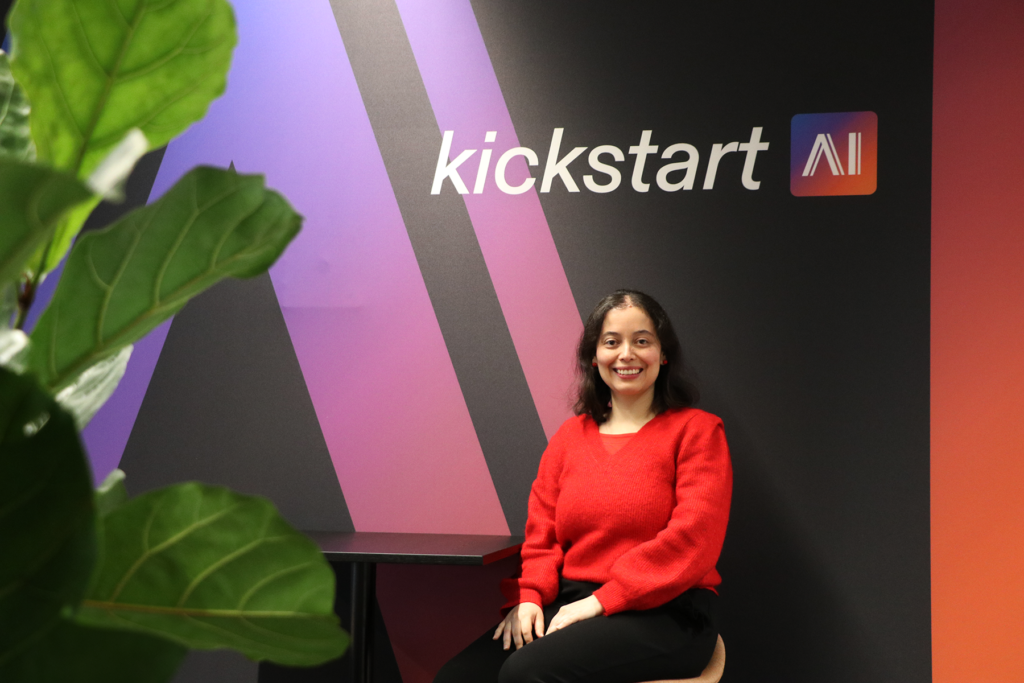
How Kickstart AI is bringing together the brightest minds in AI
To help accelerate AI adoption in the Netherlands
Kickstart AI is on a mission to accelerate AI adoption in the Dutch business sector and is partnering with businesses and organizations in the Netherlands to make this a reality. We had the chance to talk with Sander Stomph (CEO) and Carmen Martínez (Data Scientist) of Kickstart AI about their vision on AI and how it can have a positive impact on society.
Author: Ingrid van Heuven van Staereling.
Making an impact
Sander came from a technical background and used to work at KLM where he was responsible for digital operations with a focus on AI solutions. “A very long time ago I started my career as a coder and web developer.” Now he is the Co-Founder & CEO of Kickstart AI and loves the fact that he now gets the chance to work with teams that are involved with the technologies that he is familiar with. Carmen Martinez is originally from Bogota, Colombia where she studied physics. She eventually moved to The Netherlands to do a PhD in astronomy. After working for different companies, she eventually realized she wanted to apply the skills that she gained to help organizations and society. So that is how she ended up at Kickstart AI.

Kickstart AI is a foundation in the Netherlands that originated as a coalition of companies aiming to further boost the AI ecosystem in the Netherlands by accelerating and promoting the development of AI technology and nurturing AI talent in the country.Their vision is centered on the belief that AI can positively shape the future, and their mission is to accelerate the adoption of artificial intelligence in the country. The goal is to make AI accessible and beneficial to every business and individual, fostering a positive impact. To achieve this, Kickstart AI emphasizes collaboration and knowledge-sharing among data scientists and software engineers. They highlight the importance of building a community where individuals and companies can connect, share use cases, and collaborate on AI projects, ultimately contributing to the broader adoption of AI in the Netherlands.
Changing the perspective of AI
Though the technology might not be entirely new, AI has definitely experienced significant growth in recent years. Partially because of the widespread availability of inexpensive computers. From a business perspective, AI has been employed for decades, primarily involving mathematical and statistical techniques. How do the people at Kickstart AI look at the overall developments around AI? Sander feels like only a small area of AI is playing a part in this: “Most of the exponential growth has been now around generative AI and large language models.” He explains that these are the types of developments that are perceived as transformative and have generated considerable excitement. At the same time, Sander sees that generative AI, like Chat GPT, can also be revolutionary. It can positively impact all workers, both blue collar as well as white collar workers, in all sectors. There is the excitement around generative AI, but at the same time Sander emphasizes the underestimated potential of other AI and machine learning applications. “A lot of, especially small and medium sized companies don’t have a proper data infrastructure that allows them implementing machine learning models yet´.” He is citing some examples, like predictive analytics for optimizing bakery production. So while generative AI is at the forefront of discussions, he thinks that what remains is a significant untapped potential for AI implementation across various industries.
“Technology can be used for bad, but it doesn't mean that the technology is bad.”
Carmen states that AI is already an integral part of society. Weather predictions, facial recognition on smartphones, and applications like Google Maps. Some people may view generative models, like ChatGPT or DALL-E, with concern. But Carmen thinks this sentiment has to change: “Society needs to think more positively about AI, because AI is already in our lives. And thanks to AI, our society and life is much easier.” She highlights the positive impact of AI, like fire prevention, recognition of animals for conservation efforts, and aiding farmers in crop monitoring. AI technology, while powerful, in itself is neutral. “Technology can be used for bad, but it doesn’t mean that the technology is bad.” She draws a parallel with the industrial revolution, where initial fears about technological change were eventually overcome. Sander agrees and believes that good examples can help change perspective: “I think it’s super important to share the positive stories of AI where it’s already applied.” So overall, a positive perception of AI has a positive contribution to society.
Positively impacting lives
At Kickstart AI they have many great examples of good stories, and Sander jumps right in: “The thing that we’ve been working on the last couple of months is for the Food bank. I think that is a very powerful story.” In essence, their aim was to leverage data and AI to address critical questions for the food bank. Carmen explains: “We want to use data to help the food bank answer questions, like: ’’What are the factors that lead people to live below the social minimum”, ‘Can we predict the trend in the future whether there is going to be a higher or lower poverty?’ and ‘What can we do about that?’.”

They were gaining valuable insights and using AI to forecast the amount of food required for those in need of the Food Bank support Moreover, they are analyzing data to identify regions underserved by the food bank, assisting in decisions about opening new distribution points. Carmen explains ‘’“The ultimate goal for Kickstart AI is a user-friendly dashboard that provides the Food Bank with insights that they can use to make strategic decisions on how to help more people in need.’’ Beyond benefiting the food bank, the vision extends to empowering other entities, including the government, with valuable information to shape policies and laws that could help people avoid the need for food bank assistance. It’s a holistic approach aimed at positively impacting lives.
Challenge societal norms
Helping society with AI is awesome, but how do we make sure that there is a diverse collection of people working on making a positive impact? Sander thinks it is important to spark interest in STEM (Science, Technology, Engineering, and Mathematics) among young children. He has two sons himself and he hopes the iterative and creative nature of working in technology should definitely help getting young ones excited about STEM. But he realizes there is a need to break gender stereotypes. Carmen shares some personal experiences on that matter: “I had a professor that tried to push me back. He told me that maybe I was not good enough to be a physicist.” Luckily, she didn’t pay attention to him, since becoming a physicist was what she really wanted to do. “It was my passion, so I just ignored him.” Sander believes that if you look for great people, you don’t end up with an all male team: “Most of the people who work at Kickstart AI are women. That’s not a conscious choice, it just happened to be that way.”
According to Sander, Kickstart AI is a ‘coalition of the doing,’ which focuses on practical initiatives and partnering with organizations that actively contribute to change. He acknowledges the gender gap in STEM fields and notes the significance of providing role models for young girls. “When I see the AI community in the Netherlands, I see a lot of women that are very good.” Sander continues: “But when you look at the big publications we don’t see them. So there’s something wrong.” There is a need to challenge societal norms that discourage girls from pursuing mathematical and technical fields. And Kickstart AI is strongly committed to actively participate in that societal change.
Pushing AI in the right direction
Kickstart AI is motivated to help Women in AI’s ‘Activate’ program, which aims to encourage young females and disadvantaged communities to enter STEM fields of study, specifically AI. Carmen explains that this type of teamwork is crucial for achieving significant goals. “If you try to do something by yourself, you are not going to build something big.” She believes impactful work is a result of collective efforts and is excited about the partnership with Women in AI.
Sander is glad that Women in AI’s initiatives have a mission-oriented approach. He sees a community that is actively trying to solve the problem, which is not always that common. “If people consider volunteering, they should think about volunteering with their coding skills.” This can help push the AI community in the right direction. Carmen agrees: “A good step would be to go into schools.” She states there is a general need to do more outreach to girls about science. “Teach them that it is fun, it’s nice, it’s interesting. Because I think if girls are motivated at the beginning that will make a big difference.”